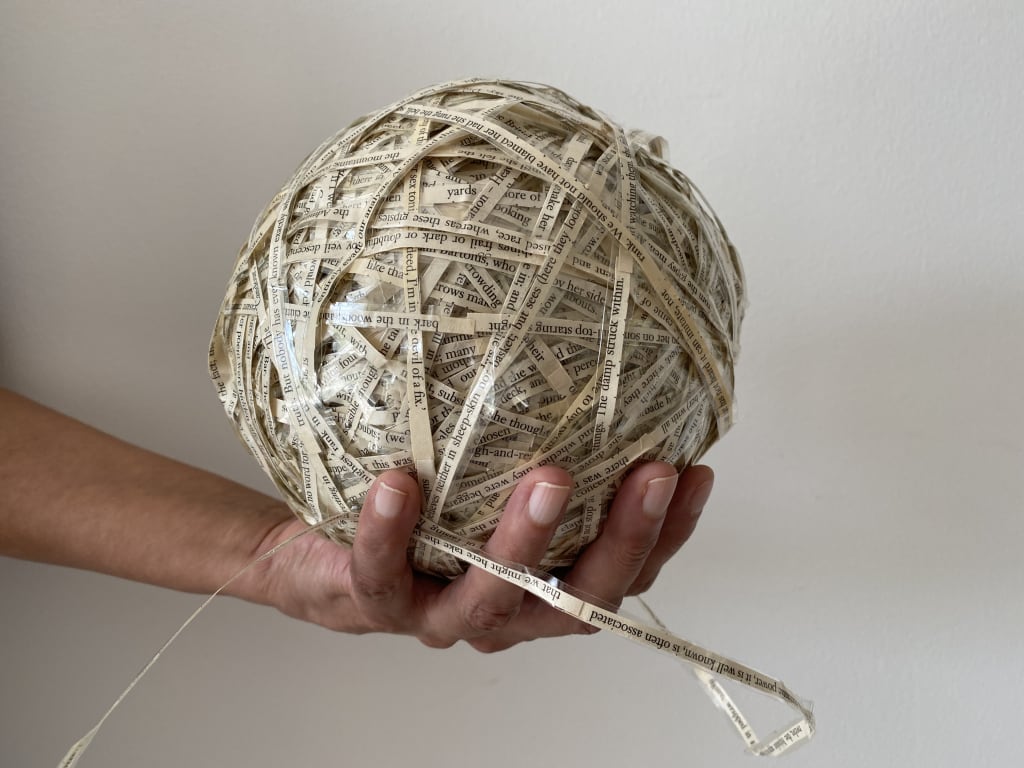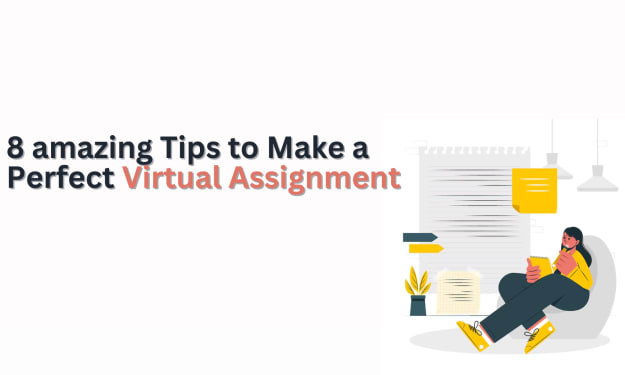Let Me Speak
How (not) to get what you want

From age five until I was roughly ten years old I lost my voice completely. Literally, no sound. Something inside me told me not to speak because speaking words meant I would protest, and that would have meant dangerous, dark consequences adding to an already tenebrous existence. Not only were my foster family abusive, they were also deeply religious; the type believing in the wrath of god and Armageddon. Because we were all allegedly living in ‘the end of days’, education was only tolerated up to what was required by law, but no further. I’m not sure why, but perhaps I stopped speaking to escape the spartan brutality selectively meted out to me. School was a refuge, but general overwhelm rendered me unable to articulate words with my own sounds. Instead, I listened, I read, and I wrote things down. Despite the countless books I voraciously devoured, I’d become accustomed to my aphasia, so I reposed within the solace of words and stories whilst my voice, literally and figuratively, continued to elude me.
Time passed and as I grew more comfortable with my peers and teachers, I saw it became necessary as well as desirable to communicate. I practiced gingerly with much embarrassment. Although I made progress, I still couldn’t properly articulate sentences. I began collecting and chronicling words in a little black book. ‘Need’ was my first word. I need dad. I need mum, wherever she is. I need comfort. I need to understand why I feel so different. Yet even this important word remained alien to me.
I continued to seek refuge in books. There wasn’t much else to take me out of my tornado of confusion. I’d write words I liked the sound of in my little black book. Cornucopia. Illicit. Devotion....I liked these words. If only I could arrange the sounds together in a sequence to make myself understood.
We lived in an ordinary non-descript working class neighborhood in a London suburb with dirty brown brick-terraced houses lining the similarly grey-brown streetscape, an almost impressionistic vision of barely-there color where foreground and background seemed to meld into one. Whenever I could escape, I’d knock next door to Dora and Charlie’s house to watch their color television, for ours was only a black and white. Dora always had a glass of milk at the ready, some fresh baked cookies, her azurite eyes twinkling beneath her spectacles like a good fairy godmother, and an embrace that felt like being engulfed in a duvet of unconditional love. If any tears flowed she’d wipe them gently and continue holding me whilst I gobbled as many cookies as I could, mesmerized by escapist television shows like Happy days, Top of the Pops, and Bewitched. Sometimes I’d collect the words I’d hear on TV and diligently add them to my little black book. Those words strengthened me with growing ambitious fantasies of potential and possibility.
I decided I would run away as soon as I could. Dad, who figured I was either painfully shy or simply a slow learner, lived four time zones away, was unaware of my tribulations at home. He’d send pocket money from time to time, most of which my foster family confiscated, so I’d squirrel away as much as I could without them knowing. Fifteen or twenty pence here, fifty pence there - whatever I could manage without being discovered. Eventually, I opened a savings account on the sly, and decided to pay myself each time I wrote down a word. With ritualistic solemnity, I’d continue to try articulating the sound of what I had written, desiring with all my heart to embody what the word meant to me, yet I’d struggle still.
Being unable to communicate severed me from my teachers’ attentions. I did not know what or how to even imagine a future other than what I’d see on TV, but I’d often eavesdrop on the girls at school talking about university plans. I lived vicariously through them with thoughts of being educated, being exposed to literature, the arts, politics, and making friends with whom to talk and laugh. Fueled by these burgeoning fantasies, I dreamed of a lusciously verdant university campus, amphitheater-style lecture halls whose acoustics would boom pearls of wisdom and erudition to reach my starved and unlearned soul, drunken concerts, pizza, and all-night study sessions at libraries of architectural magnificence that smelled of the knowledge for which I yearned.
Little by little as my sounds became clearer, more recognizable, and my secret bank account’s value increased, my determination to have a new identity and the promise of joy took on an almost-obsessive dimension. It held me together for many years until finally one day, the little black book accumulated enough words to allow me to buy a plane ticket. As soon as I turned 16, I was bound for Los Angeles. I knew no one there, but my overall determination had morphed into a singular-minded resolute ambition which, despite being devoid of any concrete plan, was to be a university-educated woman. In my mind I would conquer all my handicaps from the doom of my austerely despondent childhood. At university I’d learn more words. I’d be more like other people.
I got a part-time job, and set my sights on one Ivy-league institution. I had no idea how other young teenagers went about planning. I just knew they were privy to the parental advice I lacked. As I hadn’t completed high school, I had to attend a community college to accumulate credits and take the requisite entrance exams. “You have to send out many applications, not just one”, people would tell me. Perhaps my fantasies deafened me. I did not hear them, so I did not take their well-meaning advice. Determined and stubborn, I sent off my one and only application.
The day finally came when an exceedingly thin envelope landed in my mailbox. I panicked. As I palpated the outside it felt like a one-pager. Not the fat package I’d heard about containing an acceptance letter and welcome bundle with enrollment instructions, housing proposals, and general student affairs. My heart sank into greater dimensions of wretchedness bringing on the Furies with an alarming intensity.
Naturally, I think I sobbed for two hours straight, then scoured the tears aggressively off my cheeks with the back of my hand, stuffed the crinkled envelope into my pocket, and, still sobbing, I drove six hours to the university to demand a meeting with the Dean of admissions, without even an appointment. Still heaving from residual emotion upon entering his office, the old familiar feeling of being unable to get my words out overtook me, death-eater style. I stuttered, hoping to retrieve any sign of remaining dignity so I could at least tell him why I was there. Then I remembered I had stuffed my little black book in my pocket which gave me the strength to speak. I squeezed its worn, stained pages and suddenly bellowed at him: ‘How could you refuse me! I did everything you asked, I got everything right, I got perfect grades, I wrote a great essay! I’m not leaving until you tell me why I haven’t been accepted!!” I’d venture a guess that it didn’t quite come out that way but I got the message across.
The Dean looked at me with a hairy eye-ball roving over my abject tear-stained countenance. Turning confusedly towards his secretary Hinda, who seemed equally fascinated by my crazed hysterics, he finally responded: “Fine. But you’re going to have to wait. You know we have 30,000 students here, it’s possible you just didn’t make the cut and besides, I’ve no idea how you expect me to find your application, but seeing as you insist, I will”. He instructed Hinda to locate my application. I waited what may have been hours, clutching my envelope, now practically turned to pulp from my sweaty palms. My face, a miserable canvas of dried salty tears mashed with an excess of mascara, as my chest reverberated wildly from the remaining tremors of my despondency, I sat in a heaped lump of quivering flesh and bone. Waiting.
Hinda finally reappeared with my file, waltzed by me still in dazed curiosity and handed him the documents. The Dean called me in and glared at me, his forehead pleating upwards in what I perceived as irritation and disapproval. Suddenly the thick meat of his face, twisted into the kindest, warmest smile. “It seems we’ve made an error. Whoever received the application mistakenly marked it as a late submission, but the postmark indicates you have sent in in time, and yes, you’re right, you did a good job. In fact you’ve done a great job. I’ll make sure your place is secured for the beginning of the fall term”.
It took some moments before his words actually reached my conscious awareness but it was a moment I will never forget. I was in! I squeezed my little black book in gratitude. Had I not been so reserved I might have squeezed him too. Without knowing anything about my life story, he asked me how I intended to pay for university. I had no plan. I shrugged and said I’d manage. He taunted me again with the same hairy eyeball, then followed with another warm grandfatherly smile. “Well, my dear, I’d like to offer you a scholarship. $20,000 will pay for your education, your food and your living expenses. How does that sound?”






Comments
There are no comments for this story
Be the first to respond and start the conversation.